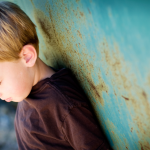Government’s own data shows rise in child poverty levels. Yet the two-child limit to benefit payments remains in place; pushing families into poverty
- Government data released today shows 4.2 million children are living in poverty (after housing costs) between April 2021 and April 2022, that is 29% of all children
- This is an increase of from last year, when the figure stood at 3.9 million
- 800,000 children lived in households that needed food from a foodbank in the past 12 months
- 71% of poor children were living in working families
- 47% of children in Asian and British Asian families are in poverty, 53% of children in Black/ African/ Caribbean and Black British families, and 25% of children in White families
- 42% of children in families with 3 or more children were in poverty
Government data released today[1], 23rd March 2023, shows that during the Financial Year ending in 2022 there was a staggering 4.2 million children living in relative low-income families across the UK – after housing costs. That is 29% of all children are growing up in families who cannot afford the basics.
Joseph Howes, Chair of the End Child Poverty Coalition said;
“Here we are again. Another year, another rise in the government’s own child poverty figures, and still no dedicated government strategy to reduce this.
“Behind the statistics released today are families living in cold homes, relying on food banks and children going without essentials like coats and shoes. No child should ever have to experience this.
“Yet there are actions the government could take to reduce the number of children living in poverty. Scrapping the two-child limit to benefit payments – where families can only receive child related payments for two of their children, would immediately lift 250,000 children out of poverty[2]. This policy punishes the poorest families, who can least afford it – pushing children into poverty.”
Sophie, an End Child Poverty Youth Ambassador said;
“I grew up in Newcastle with an older brother and two little sisters. My Mam works as a carer, and is a single parent. Growing up I worried about money, there was an anxiety about not having much at home. If you imagine how you feel when you haven’t had time to eat breakfast, or skip lunch – this is what I felt sometimes at school. You can’t focus on your school work.
“I remember my Mam not eating a proper meal for around a week, and worrying about how we could afford Christmas. I am at Uni now, but this feeling of worry still stays with me. I think my sisters will grow up feeling the same too.
“The pressure for change from the government is huge, it is no longer a cry for help from poor families but an absolute need. Surely a child’s happiness and full stomach is important. Behind the statistics of child poverty are people like me, currently we feel like we don’t matter.”
Liv, an End Child Poverty Youth Ambassador said;
“I grew up in a low income household, the implications of that are still with me today. Although I was very fortunate in some ways to not have struggled as desperately as some young people are in 2023. Many children across the country will be going to bed tonight not having anything to eat, in a freezing cold house with no clear path for when things will get better for them.
“Child poverty doesn’t just go away when you are 18. Now that I am older, I feel the impact of growing up in a low-income household just as much as I did when I was younger, navigating the cost of living crisis as a student whose rent is £9000, with the cost of food rising with inflation and rents skyrocketing. I am now making decisions around getting a second job and choosing cheaper accommodation next year, with an acute awareness that this will no doubt be poor quality. All of this, just to study.
“Something has to change and the government needs to put child poverty on the forefront of its agenda because like me 8 years ago, young people are still struggling.”
This data was taken from a period where families in receipt of Universal Credit received a £20 uplift to their payments – for the first 6 months only. After this, the uplift was removed. This period also only partly covers the cost of living crisis.
/ENDS
Notes to editors
- The End Child Poverty coalition (www.endchildpoverty.org.uk) is made up of around 85 organisations from civic society including children’s charities, child welfare organisations, social justice groups, faith groups, trade unions and others, united in our vision of a UK free of child poverty. These include Child Poverty Action Group, The Children’s Society, Buttle UK, Gingerbread, Oxfam GB, Action for Children, TUC, Save the Children, and the National Children’s Bureau.
- You can get in touch with the coalition by emailing rachel@endchildpoverty.org.uk or on 07918 567577.
- Each year End Child Poverty publishes further statistics which include the cost of housing compares with local authority boundaries, and parliamentary constituencies – this is due for release in June 2023
[1] Can be viewed here: https://www.gov.uk/government/collections/households-below-average-income-hbai–2#latest-release
[2] From CPAG’s Budget Submission, 2023, available here: https://cpag.org.uk/policy-and-campaigns/briefing/budget-submission-2023



